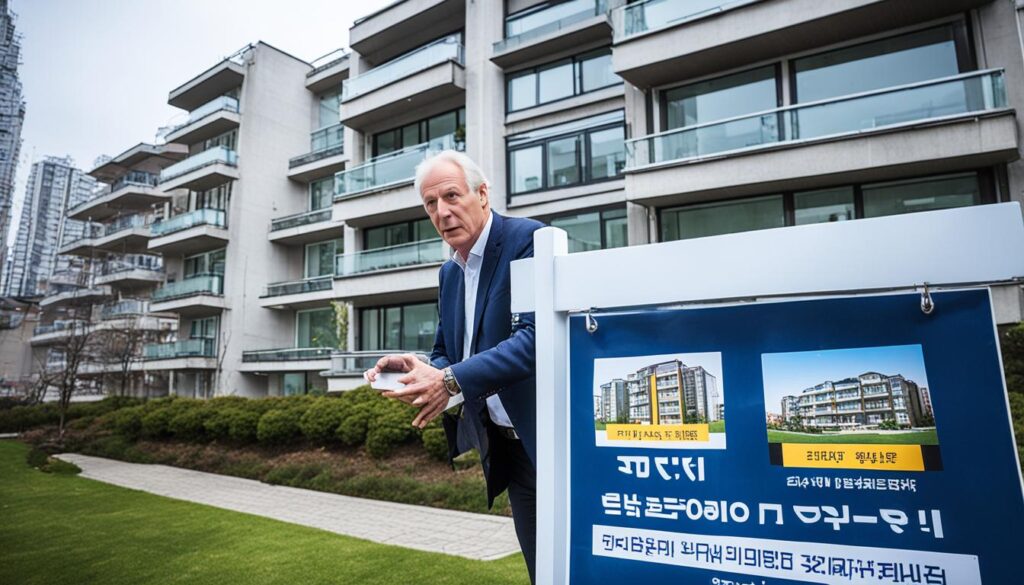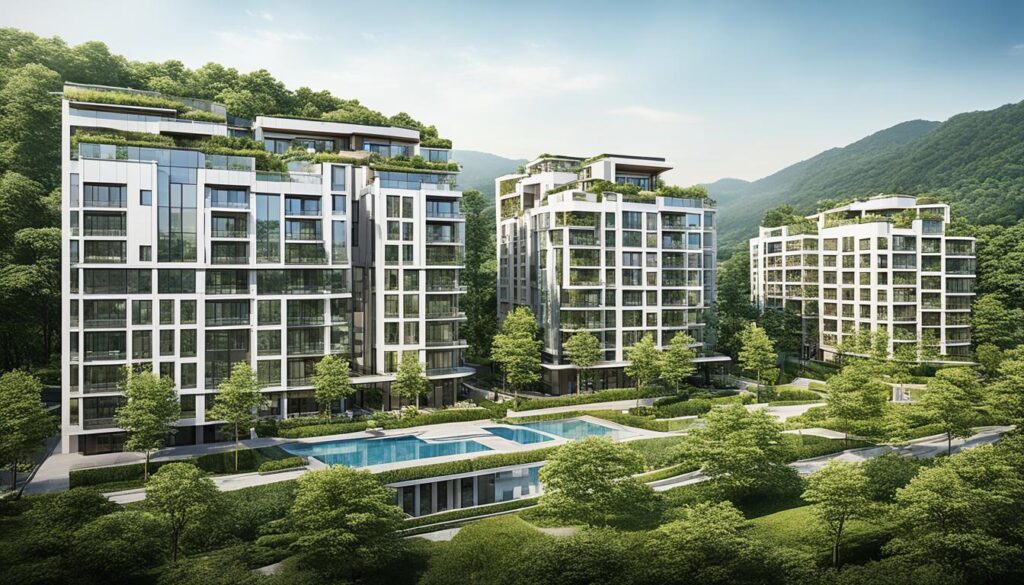South Korea has emerged as a vibrant option for foreign individuals looking to invest in real estate, owing to its dynamic culture, stunning landscapes, and accommodating property market. This guide aims to demystify the question: Can Foreigners Buy Property In South Korea? Here, we will cover everything from the legal framework governing foreign ownership of real estate in South Korea to the essential steps involved in buying a house in South Korea as a foreigner. Recent statistics show an uptick in interest from overseas buyers, highlighting the increasing opportunities within the real estate sector1. Notably, foreign buyers are not required to hold resident status to purchase property, paving the way for a variety of investment options in this fascinating country2.
Key Takeaways
- Foreigners are allowed to buy property in South Korea, including land.
- Legal requirements vary based on residency status for foreign buyers.
- Understanding tax implications associated with property purchases is crucial.
- Thorough research of the property and area is essential.
- Engaging legal and real estate professionals can simplify the purchasing process.
Contact us if you are Interested in Buying Property Abroad!
Overview of the Real Estate Market in South Korea
The South Korea property market for expats has experienced a significant surge, capturing the attention of foreign investors. This heightened interest can be attributed to various aspects of the market. Investors are keen on the diverse opportunities presented by South Korea, along with the overall economic stability that the region offers. Understanding these elements is crucial for navigating the landscape.
Key Attractions for Foreign Investors
Several key attractions for foreign investors make South Korea particularly appealing. These include:
- Vibrant cities like Seoul and Busan, boasting excellent infrastructure.
- A rich cultural experience that enhances the lifestyle of expatriates.
- A robust economy that supports real estate value appreciation.
Seoul’s metropolitan charm and Busan’s coastal beauty provide distinct advantages, appealing to various types of investors. Expats can find a wide range of accommodation options, from modern apartments to traditional housing, catering to personal preferences and budgets.
Current Market Trends and Statistics
The current market trends in South Korea suggest a steady momentum in property values, with a noted increase in confidence among buyers. Over the last five years, the GDP per capita has seen a remarkable rise of 8.3%3. Rental yields typically fluctuate between 0.5% and 2.4%3, indicating a favorable investment climate for expats looking to enter the market. Importantly, non-resident foreigners must file a real estate acquisition report within 60 days of contract signing according to the Foreign Exchange Transactions Act4.
Can Foreigners Buy Property In South Korea?

Purchasing property as a foreigner in South Korea has become increasingly popular due to the country’s welcoming policies for international buyers. Understanding the legal framework for foreign ownership is essential for prospective investors. Foreigners, including Americans, can buy real estate in South Korea on various visas, such as tourist visas, with no citizenship requirements needed to own property. It is necessary for foreign buyers to obtain a Foreign Registration Number by registering with the local immigration office, which facilitates the ownership process. Opening a local bank account is also typically necessary for transactions, ensuring a smoother purchasing experience.
Legal Framework for Foreign Ownership
The purchasing process is governed by laws such as the Foreigner’s Land Acquisition Act and the Registration of Real Estate Law. Foreigners are allowed to buy residential and commercial properties but may face certain restrictions, particularly when dealing with agricultural land or areas near sensitive locations. Notably, there are no official restrictions on the types of properties available to foreigners, though specific areas may require extra government approval. Regulations ensure that foreign buyers notify the government of their acquisition no later than 60 days after entering a sale-purchase agreement5.
Types of Properties Available to Foreigners
A wide variety of types of properties available to foreigners includes residential homes, commercial properties, and land. The resident foreign population exceeded two million by mid-2016, reflecting a growing interest in real estate investment from overseas. In terms of rental markets, prices in central Seoul can be significantly high due to saturation; for instance, the average monthly rent for a small one-bedroom apartment is approximately 717,150.10 ₩6. Foreign property investment may also facilitate pathways to residency in South Korea, such as the F-2 visa, typically requiring a minimum real estate investment of around 500 million KRW5. This visa grants temporary residency and can eventually lead to permanent residency, depending on specific criteria being met.
For detailed guidance on the legal framework for foreign ownership, prospective buyers are encouraged to engage with local legal and real estate professionals56.
Property Ownership Rules in South Korea

Understanding the property ownership rules in South Korea is essential for foreign investors. The Foreigner’s Land Acquisition Act necessitates that foreign buyers notify the government about their acquisitions of property. This act aims to promote transparency and requires registration under the Registration of Real Estate Law. In South Korea, a total of 81,626 foreigners owned residential properties, which accounts for 0.4 percent of all homes in the country7. While foreigners can purchase properties, restrictions on property types and locations apply.
Understanding the Foreigner’s Land Acquisition Act
The Foreigner’s Land Acquisition Act mandates that foreign entities intending to buy property must comply with specific regulations. This includes obtaining necessary permissions, ensuring compliance with local laws. Some areas, such as those close to military bases or certain ecologically sensitive zones, have defined restrictions. These limitations are crucial for maintaining national security and environmental integrity. Chinese nationals represent the largest group of foreign investors, making up 58.7 percent, followed by US nationals at 21.9 percent7.
Restrictions on Property Types and Locations
Restrictions on property types include limitations on acquiring land that could impact national interests. In urban settings, property types like commercial buildings and residential units are more accessible. Still, certain developments are strictly regulated, especially in high-demand areas. In desirable districts of Seoul, average apartment prices can range from KRW 600 million to KRW 1.5 billion8. Furthermore, it remains critical to comply with local zoning regulations and usage requirements when considering property investments in South Korea. Investing in rental properties in high-demand areas can yield steady income streams, while suburban areas offer more affordable options, with average prices ranging from KRW 200 million to KRW 500 million8.
| Property Type | Average Price Range (KRW) | Location Types |
|---|---|---|
| Urban Apartments | 600 million – 1.5 billion | Seoul |
| Desirable Apartments | 300 million – 800 million | Busan |
| Suburban Apartments | 200 million – 500 million | Suburban Areas |
Overall, navigating the property ownership rules in South Korea, including understanding the Foreigner’s Land Acquisition Act and the restrictions on property types, is vital for foreign investors looking to enter the market successfully. Legal assistance is highly recommended when attempting to purchase property to avoid potential pitfalls associated with local laws and regulations8.
Steps to Purchase Property as a Foreigner in South Korea

The process of purchasing property in South Korea as a foreigner involves several key steps to ensure a smooth transaction. Understanding these steps can help you navigate requirements effectively.
Preparing Necessary Documentation
Before starting the steps to purchase property, you must gather the necessary documentation for property purchase. Essential documents include a valid passport, a taxpayer identification number, and proof of funds demonstrating your ability to complete the transaction. Familiarize yourself with South Korea’s regulations regarding the documentation required as a foreign buyer, as these may vary depending on your nationality and the type of property you are interested in.
Choosing the Right Location and Property
Selecting the appropriate location and property is crucial in your purchase journey. Research popular areas such as Seoul, where apartment prices in desirable districts can range from KRW 600 million to KRW 1.5 billion, or more8. Conversely, consider suburbs offering more affordable housing options, with prices between KRW 200 million and KRW 500 million8. Assess demographic trends and potential investment returns to make an informed decision.
Engaging Legal and Real Estate Professionals
Engaging legal and real estate professionals in South Korea is highly recommended to facilitate the buying process. A reputable lawyer can help navigate property laws, with fees varying based on the complexity of your transaction8. Similarly, local real estate agents possess valuable knowledge of market trends and can assist in identifying properties that meet your criteria. Effective engagement with these professionals can help mitigate risks associated with language barriers and complex contracts that foreign buyers often encounter.
Contact us if you are Interested in Buying Property Abroad!
Tax Implications and Fees for Foreign Buyers
When navigating the South Korean real estate market, foreign buyers should be particularly mindful of various tax implications and associated fees. Understanding these financial obligations can significantly influence investment decisions and strategy.
Understanding Property Taxes and Fees
Foreign investors must recognize the array of property taxes in South Korea that apply to real estate holdings. General property tax rates range from 0.1% to 0.5% of the property’s assessed value, depending on the type and location of the property9. Additionally, the comprehensive real estate holding tax can reach up to 2.0% for properties exceeding certain thresholds9. Notably, foreign capital-invested companies may qualify for reduced rates in acquisition tax and property tax, making investments more attractive under certain conditions9.
Acquisition and Registration Taxes
The acquisition and registration taxes are critical considerations for any foreign buyer. Acquisition tax rates can fluctuate between 1% and 4% based on the acquisition price of the property10. Furthermore, when registering property ownership, buyers should expect registration fees that can range from 0.2% to 5%, which depend on the specifics of the property being registered10. In addition, a stamp tax applies when dealing with property documents and ranges from KRW 50 to KRW 350,000, depending on the nature of the documentation10.
Below is a table summarizing key taxes and fees relevant to foreign buyers in South Korea:
| Tax Type | Rate | Details |
|---|---|---|
| Property Tax | 0.1% – 0.5% | Based on assessed value of the property |
| Comprehensive Holding Tax | 0.5% – 2.0% | Applicable for properties above certain value thresholds |
| Acquisition Tax | 1% – 4% | Based on the acquisition price |
| Registration Tax | 0.2% – 5% | Charged upon property registration |
| Stamp Tax | KRW 50 – KRW 350,000 | Applicable to property documentation |
Real Estate Investment for Foreigners

South Korea’s dynamic real estate market offers numerous investment opportunities for foreigners, especially in major urban areas. Cities like Seoul, Busan, and Jeju present diversified prospects ranging from residential and commercial properties to vacation rentals. The growth of Airbnb has particularly influenced investment trends. In Ulsan, for instance, the average annual revenue for a studio-type property can reach $21,846, highlighting the area’s profitability for foreign investors interested in rental income11.
Opportunities for Investment in South Korea
Investors can benefit from South Korea’s welcoming stance towards foreign property ownership, as it allows individuals to own land under their name, a rarity in Asia. Notably, South Korea boasts the lowest property tax rates among developed Asian nations, making it an attractive market for real estate investment for foreigners12. Furthermore, Seoul, the capital, with a population of around 10 million and an impressive GDP of $408 billion, serves as a prime location for both residential and commercial investments12.
Risks and Challenges for Foreign Investors
Despite the benefits, there are inherent risks for foreign investors in navigating the complex landscape of the South Korean real estate market. Fluctuating property prices and intricate regulations can pose significant challenges. For instance, under The Foreigner’s Land Acquisition Act, foreign buyers need to secure approvals for land transactions in protected areas, ensuring compliance within 60 days11. Engaging with local experts and conducting thorough market research are essential strategies to mitigate these risks, allowing investors to make informed decisions.
Buying Land in South Korea as a Non-Resident

For individuals looking into buying land in South Korea as a non-resident, it is essential to understand the different requirements and processes involved. The approach is notably different for residential vs. commercial land purchase, with the latter typically requiring additional scrutiny and approvals from local authorities.
Differences Between Buying Residential vs. Commercial Land
When considering the landscape of property ownership, residential land purchases are often more straightforward compared to commercial properties. Non-residents can enjoy a more accessible process for acquiring residential land without extensive legal entanglements. In contrast, a commercial land purchase may necessitate various approvals, including adherence to zoning regulations that dictate land use, especially in sensitive areas like coastal zones and regions near military installations.
Required Approvals and Permits for Land Acquisition
Acquiring land in South Korea mandates a comprehensive understanding of land acquisition approvals. Non-residents must notify local governments within 60 days of signing a sale-purchase agreement as stipulated by the Foreigner’s Land Acquisition Act. Additionally, obtaining a Foreign Registration Number is essential for property transactions. It’s imperative to fulfill the documentation requirements, including a valid passport, taxpayer identification, and sale contract, to facilitate a smooth acquisition process for non-residents. The associated costs such as stamp duty, which stands at 0.20% of the property value, and registration taxes ranging from 1% to 3% add another layer to the investment decision-making process3. Understanding these key differences and legalities ensures non-residents can navigate the real estate landscape successfully.
Gaining Residency Through Property Investment

Foreigners interested in living in South Korea can achieve residency through property investment. One of the most popular avenues is the F-2 long-term residency visa, which is designed for those who invest significantly in real estate. This visa opens doors to a two-year resident permit, with a possibility of aligning future investment with permanent residency and even citizenship after a specified duration.
Overview of the F-2 Long-Term Residency Visa
The F-2 long-term residency visa allows qualifying investors to reside in South Korea by investing a minimum of around 500 million KRW, which is approximately $450,000 USD. Investors must maintain this investment to avoid disqualification; any reduction below this threshold due to mortgages could endanger their residency status13. After residing for five consecutive years, investors can apply for permanent residency, provided they meet vital criteria14.
Investment Thresholds and Requirements
To achieve residency through property investment, applicants often need to focus on specific investment thresholds for residency. For instance, purchasing qualifying real estate valued at a minimum of 1 billion KRW, equivalent to roughly $788,000 USD, could facilitate temporary residency15. Furthermore, collaboration with other investors may allow for a larger property investment while each party meets the initial requirement of approximately 500 million KRW14.
Conclusion
Navigating the real estate landscape in South Korea is both feasible and rewarding for foreign buyers. With no citizenship requirements for property ownership and the ability to purchase on various visas, including tourist visas, there are ample opportunities to invest. However, owners must obtain a Foreign Registration Number and typically open a local bank account to facilitate transactions5. The absence of official limits on the number of properties foreigners can own makes this market particularly attractive.
As interest from foreign investors continues to grow, understanding the tax implications is crucial. Property taxes, along with acquisition and transfer taxes, form part of the financial obligations of property owners4. Foreigners acquiring property for investment should be aware of filing requirements and timelines to ensure compliance with local regulations.
In conclusion, this guide serves to inform and empower those looking to explore foreign property buying in South Korea. By demystifying the legal frameworks and procedures involved, buyers can make educated decisions and achieve successful real estate investments in this vibrant country. For more detailed information, refer to the comprehensive resource found here.
Contact us if you are Interested in Buying Property Abroad!
FAQ
Can foreigners buy property in South Korea?
What laws govern foreign ownership of real estate in South Korea?
Are there restrictions on property types and locations for foreigners?
What steps should I take to prepare for purchasing property in South Korea?
What tax implications should I be aware of as a foreign buyer?
What are the investment opportunities available for foreigners in South Korea?
What is the process for buying land in South Korea as a non-resident?
How can property investment lead to residency in South Korea?
Source Links
- https://www.angloinfo.com/how-to/south-korea/housing/buying-property/procedure-for-foreigners
- https://www.lovehappensmag.com/blog/2024/02/06/navigating-south-koreas-unique-real-estate-market/
- https://companyformationkorea.com/buy-a-property-in-korea/
- https://lawfirmleeandlee.com/real-estate-law-firm-korea/
- https://bambooroutes.com/blogs/news/south-korea-us-citizen-property-ownership
- https://www.expatfocus.com/south-korea/articles/how-to-rent-or-buy-property-in-south-korea-6228
- https://www.koreaherald.com/view.php?ud=20230822000646
- https://www.expatfocus.com/south-korea/guide/south-korea-buying-property
- https://multilaw.com/Multilaw/Multilaw/RealEstate/Real_Estate_Guide_South_Korea.aspx
- https://taxsummaries.pwc.com/republic-of-korea/corporate/other-taxes
- https://airbtics.com/real-estate-investment-in-korea/
- https://www.investasian.com/country-guides/south-korea-real-estate/
- https://www.linkedin.com/pulse/how-get-south-korean-residency-citizenship-nomad-capitalist
- https://nomadcapitalist.com/expat/little-known-place-anyone-can-visit-get-residence-visa/
- https://www.imidaily.com/south-korea-immigrant-investor-scheme-for-public-business-iispb/

Comments